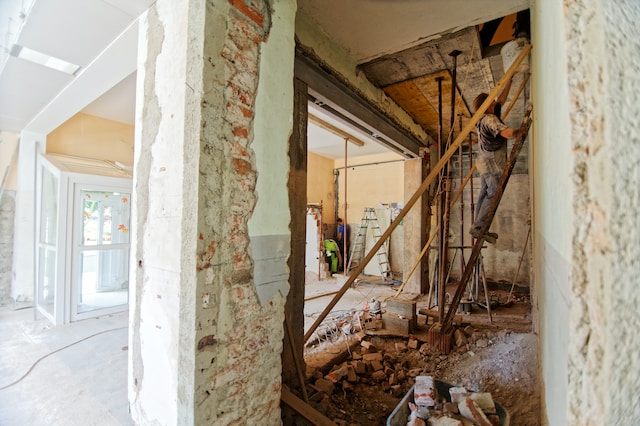Home renovation can be an exciting yet daunting experience, especially when managing costs. Whether planning to do a complete overhaul or want to update a few rooms, managing the budget is crucial to ensure that the project doesn’t cost you more than you anticipated.

With so many expenses involved, it’s important to have a solid plan before you start. In this blog post, we’ll discuss six tips for managing home renovation costs to help you stay within budget and maximize your investment.
1. Hire the Right Contractors
Securing the correct contractors is critical to guarantee that your project will be accomplished efficiently, cost-effectively, and most importantly – to your satisfaction. A reliable team at A&M can make all the difference in the success of your renovation project. When selecting a contractor, you must do your research and obtain referrals from friends and family or check online reviews.
Once you have a list of potential contractors, obtain multiple quotes from each contractor to compare prices and services. Remember to ask for references from previous clients and to check the contractor’s credentials and certifications. Choosing a contractor with experience in your specific type of renovation project can also ensure that your project is completed with the highest quality and expertise.
2. Set a Realistic Budget
Crafting a practical budget allows you to determine how much you can spend and save without compromising necessities or overextending your resources. Breaking down your budget into categories like housing, groceries, entertainment, and savings is important so that you know exactly where your money is going.
A clear breakdown will ensure you make beneficial financial choices each month instead of draining your wallet. Additionally, saving money for an emergency or rainy day will give you peace of mind and allow for some wiggle room should you encounter unexpected expenses during the month. Adhering to a budget will stabilize your finances and clarify where your hard-earned money is best spent.
3. Prioritize Your Needs and Wants
Regarding home renovations, being realistic about what you need and want for your space is essential. Consider if the extra expense is worth it in the long run or if more cost-effective options are available. It’s also important to remember that some expenses can wait until later on down the line if necessary.
For example, updating the kitchen or bathroom counters may seem necessary, but if you’re on a tight budget, it might be best to wait until later. Also, avoid making impulse purchases even if something is on sale – saving money and making an informed decision when ready is better.
4. Research Materials and Appliances
Research to save yourself a lot of money, energy, and effort. Understand the materials and appliances you’ll require for your project so that you can make a financially sound decision with maximum ease.
You can find the same product at a lower price online or at different stores. Additionally, research local suppliers or stores that offer discounts on materials. If you’re renovating your kitchen and replacing appliances, shop around for the best deal on things such as refrigerators and stoves.
5. Plan Your Project Carefully
Setting aside time to plan your renovation project is essential for its success. Before you start the project, map out a timeline and budget with realistic expectations of how long it will take and how much it will cost. This will help ensure that the result matches your vision and that the project stays within budget.
It’s also helpful to research different renovation techniques and determine the most cost-effective methods. This can save you time and money by helping ensure that your project is completed quickly and with quality results. Taking the time to plan your renovation project carefully is an essential step for successful home renovations.
6. Keep Track of Your Expenses
Staying organized throughout your renovation process is key to completing the project efficiently and effectively. Keeping track of all receipts, invoices, and contracts related to home renovations can help you identify potential problems or issues early on. This will also ensure you have documentation for any warranties or guarantees included with purchasing materials or appliances, should a problem arise.
Furthermore, tracking your expenses will make it easier to stay within budget and avoid any unexpected costs that may arise during the project. A clear understanding of what you are spending money on will also help ensure that you make smart financial decisions when renovating your home.
By following these tips, you can ensure that your renovation project is completed within your budget and to your satisfaction. Remember also to be flexible and open to making adjustments along the way as unexpected expenses may arise. With proper planning and the right team in place, you can achieve the home renovation of your dreams without breaking the bank.
Related Posts:
- 6 Tips To Help You Plan Out A Major Home Renovation
- 7 Smart Ways to Speed-Up Site Cleaning After a Home Renovation Project
- 6 Key Home Renovations for a Safe and Secure Home
- How to Transform the Look of Your Home’s Exterior Without Major Renovations
- 12 Budget-friendly Home Renovation Ideas for Every Room